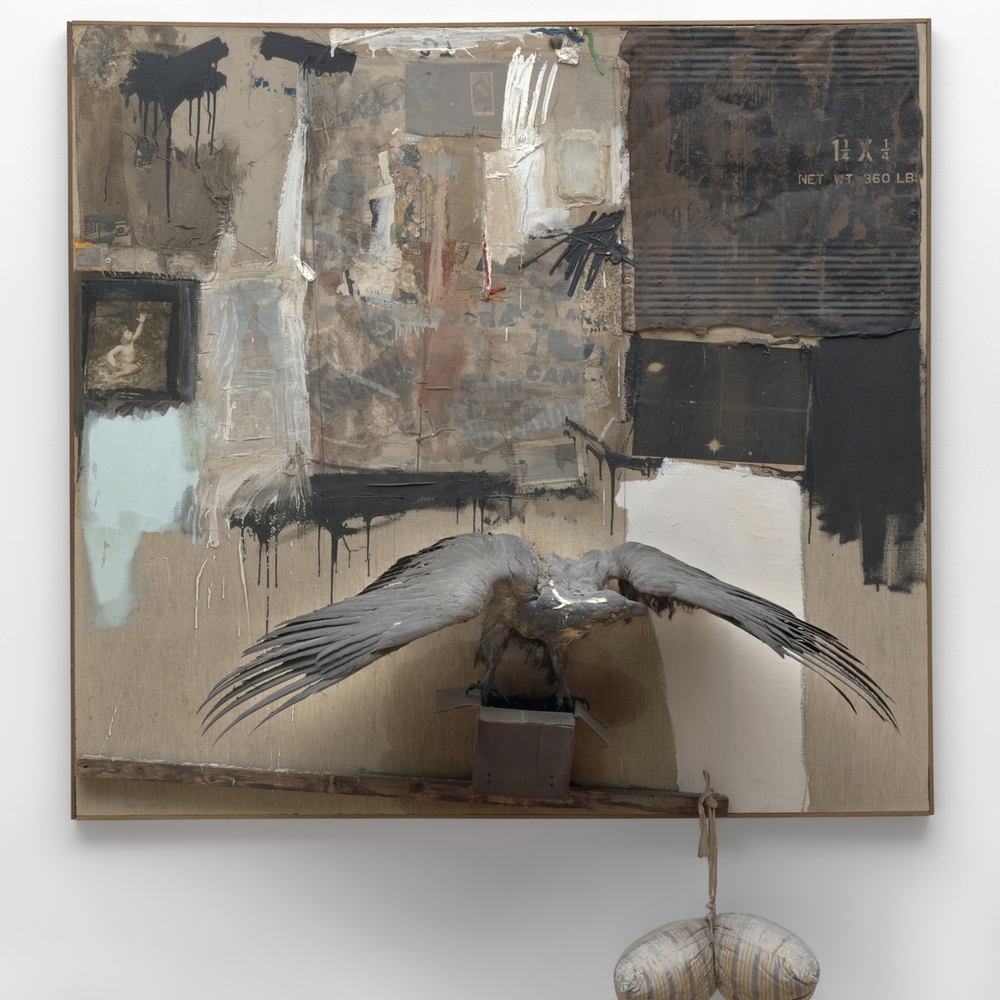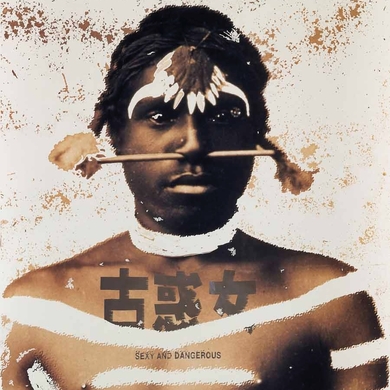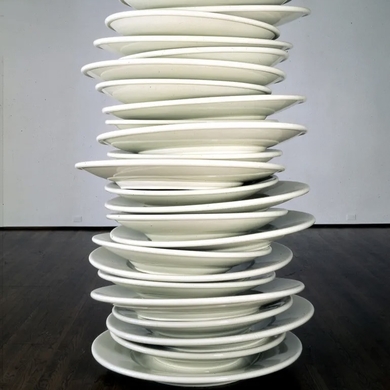“This is a portrait of Iris Clert if I say so,” wrote Robert Rauschenberg to Iris Clert in 1961—in a telegram. To mark the centennial of Rauschenberg’s birth, the Guggenheim presents an exhibition of key works by the artist who stretched the rules of how materials could be used. Rauschenberg’s innovations might be partially attributed to his distrust of specialization, which he considered an academic construct to be avoided. “[T]he kind of ‘teaching’ he preferred,” writes the artist Jeff Perrone, “was that of John Cage: nonacademic, tinged with Asian philosophy, interdisciplinary, and permissive.” Being rigorous about non-specialization permitted the invention he is known for, works like Canyon (1959), in which a taxidermied golden eagle flies out of the painting. The Guggenheim exhibition includes Rauschenberg’s enormous Barge (1962–63), the largest of his mid–sixties silkscreen paintings. It was created in a single day. —Jimmy Lux Fox
Arts Intel Report
Collection in Focus | Robert Rauschenberg: Life Can't Be Stopped

Robert Rauschenberg, Canyon, 1959.
When
Until Apr 4
Where
Etc
Photo: Courtesy of MoMA.



